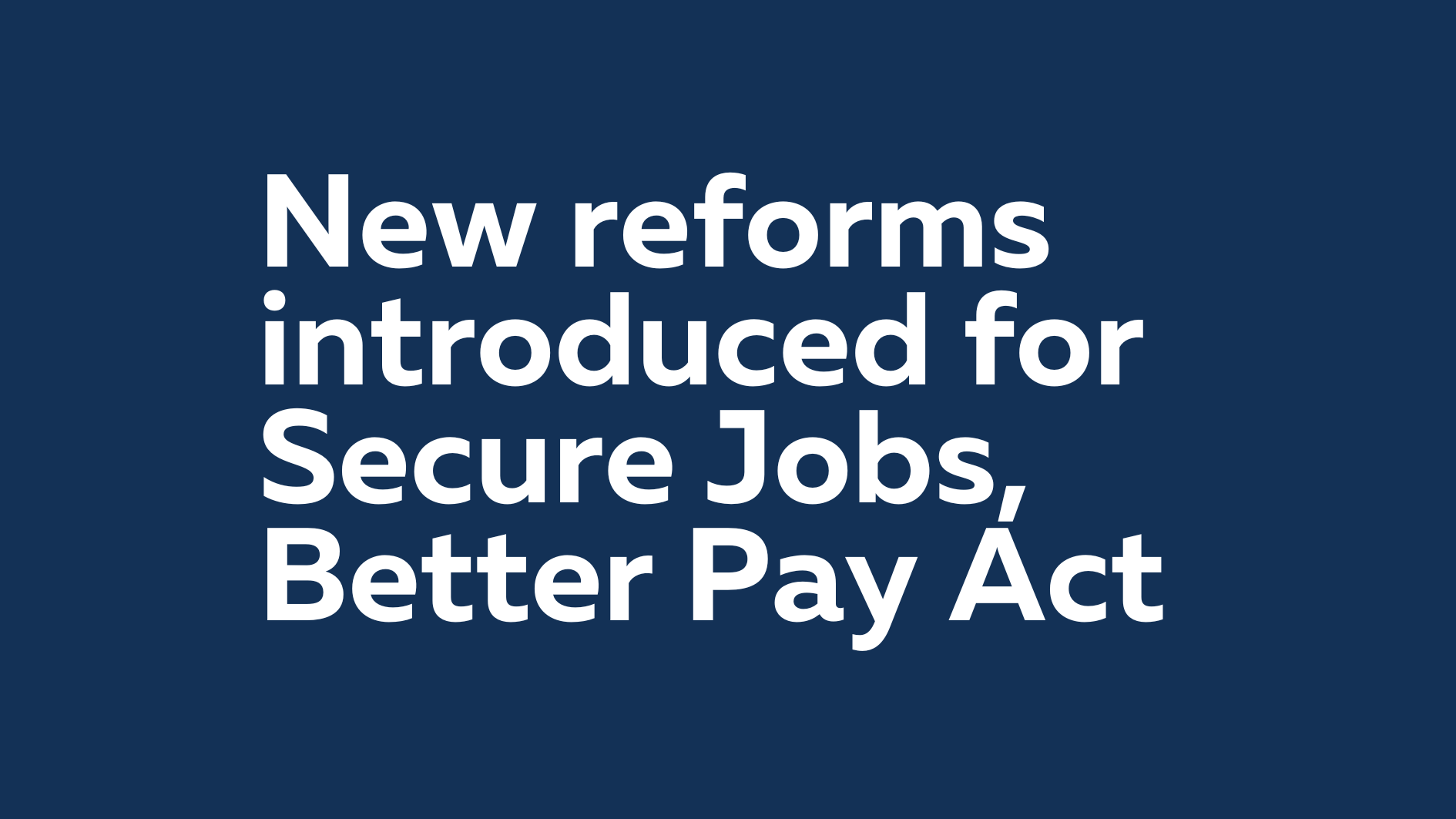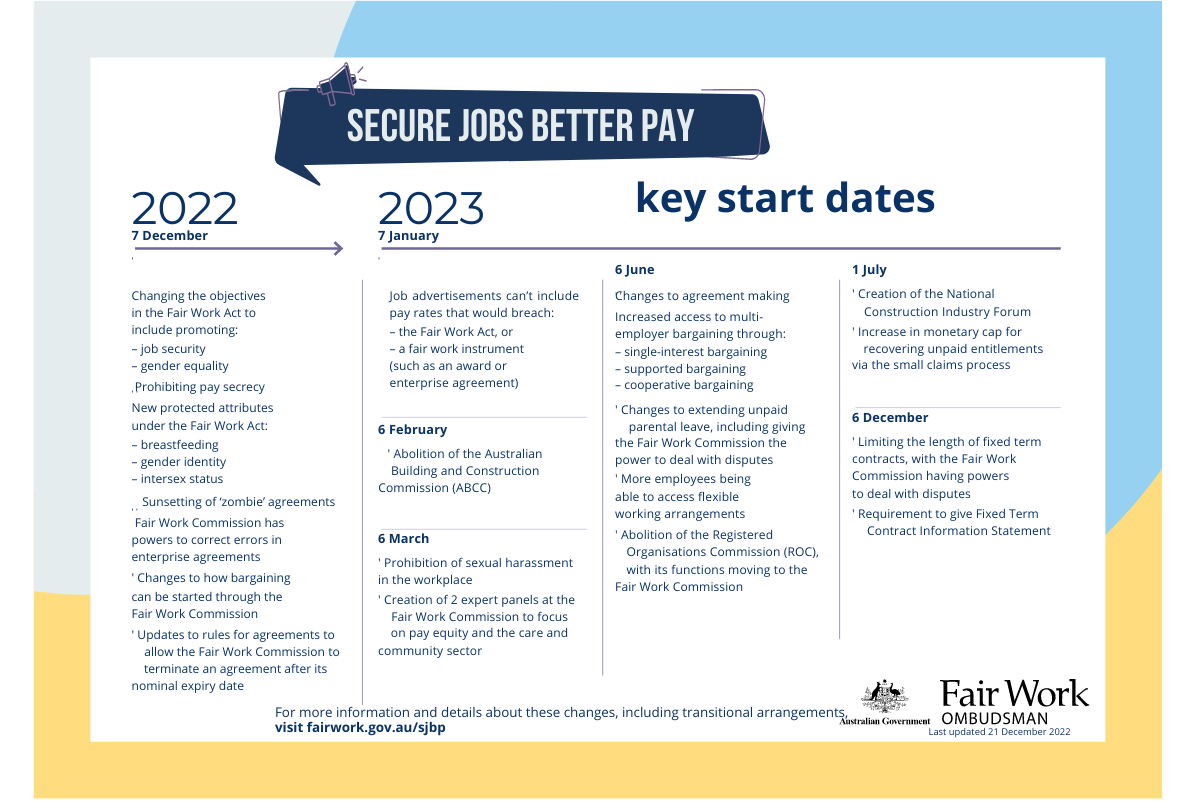Flexible Work arrangements and unpaid parental leave disputes
There will be an increase in who can access flexible working arrangements and stricter conditions as to what employers can deem reasonable grounds.
Employers must respond reasonably to flexible work arrangement requests from team members who are:
- Over 55
- Living with a disability
- Caring for infants or school-aged children
- Carers (within the meaning of the Carer Recognition Act 2010 (Ch)), or
- Experiencing family and domestic violence, or caring for someone who is.
- Pregnant
There will be an increased obligation on the “employer to consult, provide reasons for a refusal, and to discuss any flexible work arrangements the employer is willing to make.”
The response must be in writing within 21 days of the request, either agreeing, providing an alternative amendment, or refusing with reasons. Requests can only be refused after discussions between parties where they have tried to reach an agreement. Only for certain reasons can it be denied, such as the cost would be too high or the changes would be impractical.
The National Employment Standards provide guidance for requests for flexible work arrangements and unpaid parental leave. The FWC will receive new powers to deal with disputes in the amendment.
Fixed-term contracts are changing
In an attempt to combat job instability, the government is trying to prevent the ongoing use of fixed-term contracts by introducing a cap of no more than two years (including renewals) or two consecutive contracts (whichever is shorter). As with flexible work arrangements, the FWC will have the power to deal with disputes.
There are exceptions for fixed-term contracts, including engaging an employee with a specialised skillset to complete a specific task and apprentices or trainees. It also allows for essential workers during peak periods (including seasonal workers), emergency situations, covering a permanent employee who is on leave, and if an employee is earning more than the high-income threshold. The FWC will develop a Fixed-term contract information sheet to be provided to employees.
Zombie Agreements are being phased out
Zombie agreements are those agreements that were made before the FW Act came into effect on 1 January 2010. Most zombie agreements no longer operate, but those still in use will be automatically terminated on 7 December 2023 unless you apply for an application to the FWC. Employers must notify anyone working under a zombie agreement about the changes before 7 June 2023. The notice must be in writing. If you need clarification, the FWC has made a list. You can find the list here.
More changes include the Abolition of the Registered Organisations Commission (ROC), with its functions moving to the Fair Work Commission, the creation of 2 expert panels at the Fair Work Commission to focus on pay equity and the care and community sector and increased access to multi-employer bargaining through single-interest bargaining, supported bargaining, cooperative bargaining.
To talk with one of our HR Experts, you can book a call or you can call us on 1800 868 254.








